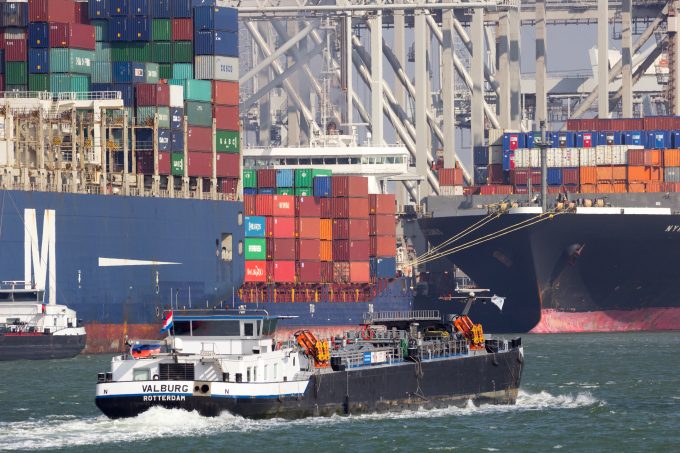Maersk skips call at Rotterdam as labour issues bring delay
Labour unrest at the port of Rotterdam has exposed long-standing issues and diminishing hopes of ...

Barges are being turned into floating storage platforms to alleviate pressures on Northern Europe’s ocean terminals, as inland waterway operators report surging congestion.
Wait times at Rotterdam have sky-rocketed over the past week to almost seven days, masking a positive start to a month in which delays on inland services hit a near-five-year low around the 40-hour mark.
But on Friday, Contargo informed customers wait times for barge handling had hit 163 hours for Rotterdam and 43 hours for Antwerp, but failed ...
Maersk Air Cargo sees volumes fall as it aims for 'margin in favour of revenue'
Keep our news independent, by supporting The Loadstar
Container spot rates diverge: to Europe still falling, but firmer to the US
Hapag-Lloyd won't take bookings if port congestion leaves cargo stranded
Ecommerce likely the front-runner in resurge of transpacific trade after deal
China-US trade tariff pause could drive a rebound for transpacific rates
Volume surge and an early peak season? 'Don't celebrate too soon,' warning
Airfreight players eye new routes as demand on the transpacific nosedives
Service chaos from trade ban with India a problem for Pakistan shippers
Airfreight rates ex-China 'loss-making', but hopes of a trade deal stay high
Indian coastal freight attracts major carriers, but regional tension disrupts
Serious threat to jobs in US logistics as tariffs cause economic 'stagflation'

Comment on this article